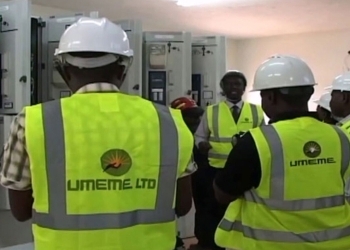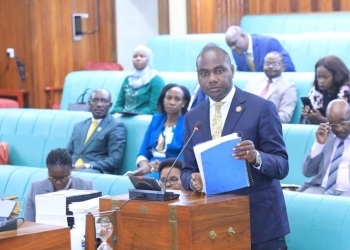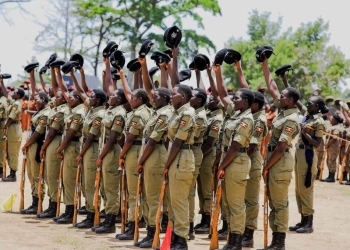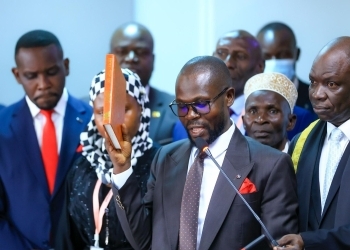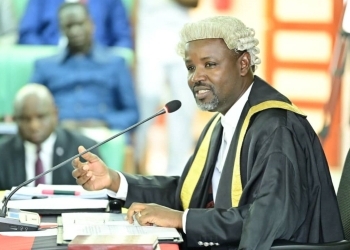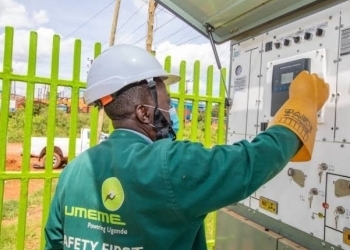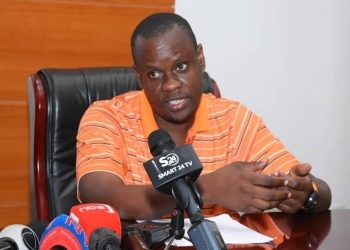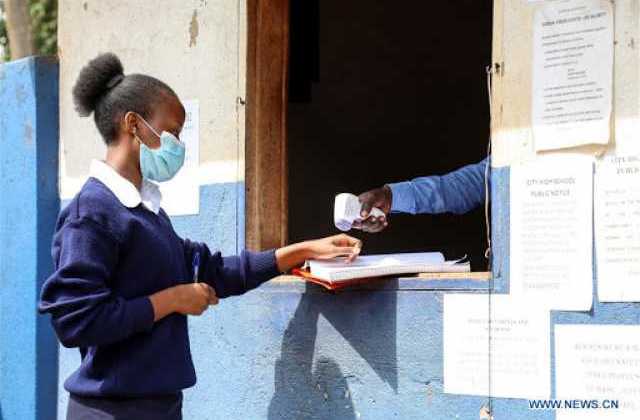
All education institutions in Uganda are required to adhere to the requirements of the SOPs as they gradually re-open for face to face lessons after a one-year lockdown that started on March 18th 2020.
The Ministry of Education has come up with what it terms as “a critical addition” to the revised guidelines is the section on Covid-19 surveillance in education institutions, which is intended to help monitor illness symptoms to ensure early detection of outbreaks of Covid-19 and provide measures to prevent transmission of disease.
Schools opened on Monday the 1st March 2021 for non-candidate classes starting with semi-candidate classes (P6, S3 and S5). Alex Kakooza the Permanent Secretary – Ministry of Education and Sports says all schools shall strictly follow the attached revised school calendar.
He also says that Special schools for learners with special needs may open and operate for all classes provided they have the capacity to adhere to the recommended social distancing.
A school categorized officially as “Day and Boarding” may operate as such, subject to a compliance certification from DES, or may opt to operate as “Day schools” and NOT BOARDING as the new arrangement only. On Monday, several parents were seen complaining that schools had decided to turn to only boarding section and ask for insane amounts of money in school fees.
According to Kakooza, a school operating as “Day and Boarding” shall ensure that the two categories of learners do not interact physically.
“The SOP’s elaborate what the schools need to do to ensure safe operations. Nevertheless, it is the primary responsibility of the heads of education institutions, working with School Management Committees / Boards of Governors / Governing Councils, to create a safe learning environment. The management of institutions should put in place appropriate measures to implement the SOPs for prevention and management of Covid-19” he noted.
Adding that all education institutions shall support and participate in the Covid-19 surveillance mechanism as detailed in Section 7.3 of the SOPs. This, he says is to ensure early detection of infection and effective management of cases to prevent the spread of the pandemic.
The revised SOP’s provide an elaborate mechanism of COVID 19 surveillance in education institutions which will help monitor and report symptoms for early detection and management of outbreaks.
“Implementation of the SOPs requires ample facilities such as classrooms, desks and hand washing equipment, which may not be readily available in all institutions. It is necessary that institutions effectively utilize the available facilities to implement the requirements of the SOPs. This may include use of libraries, laboratories, dining halls and main halls where available, as classrooms. Safe temporary shelters, such as tents, may be used as classrooms. Open air spaces, such as tree shades may be improvised as temporary venues for some classes” Kakooza advised.
He further advised that institutions with large numbers of learners, which cannot be accommodated in the available classrooms at the recommended social distancing, may decide to operate either: Morning and afternoon shifts. or: An alternate-day attendance schedule for different classes.
Schools which do not employ a qualified and dedicated health worker are advised to establish a formal collaboration with a health facility within a radius of 5kms for quick response and management of emerging health issues. Each education institution shall work closely with the district Covid-19 taskforce to organize basic training for its staff on management of Covid-19. Institutions shall build staff awareness and knowledge on Covid-19 safety measures through regular sharing of accurate information and literature.
The strategies for recovery of lost time are premised on the guiding principles that; All essential curriculum content shall be recovered over the period of the education cycles i.e. lower primary, upper primary, lower secondary and upper secondary. Curriculum delivery is sequential, cumulative, spiral and concentric; therefore, curriculum coverage should not be restricted to a particular class in an education cycle. Learning happens in both the classroom and beyond; therefore, learning to learn is critical in curriculum implementation. Teachers and schools are capable of innovative ways of interpreting and implementing the curriculum to recover time if appropriately guided.
To ensure effective recovery of lost learning time, Ministry of Education will ensure; Reorganization of the sequencing of the curriculum content such that work which cannot be covered in the current class is pushed to the next class(s). Hybrid curriculum implementation which shall include distribution of self study materials to the learners, Lesson broadcasts on radio and TV. Upload of published audio and audio-visual learning materials on the Ministry Website. And Exploring the possibility of dedicated Education Media Channels.
Meanwhile, Education institutions shall engage their parents/guardians to adopt flexible fees payment arrangements and allow payment in appropriate instalments. Education institutions shall not increase fees from what was charged for first term 2020.


